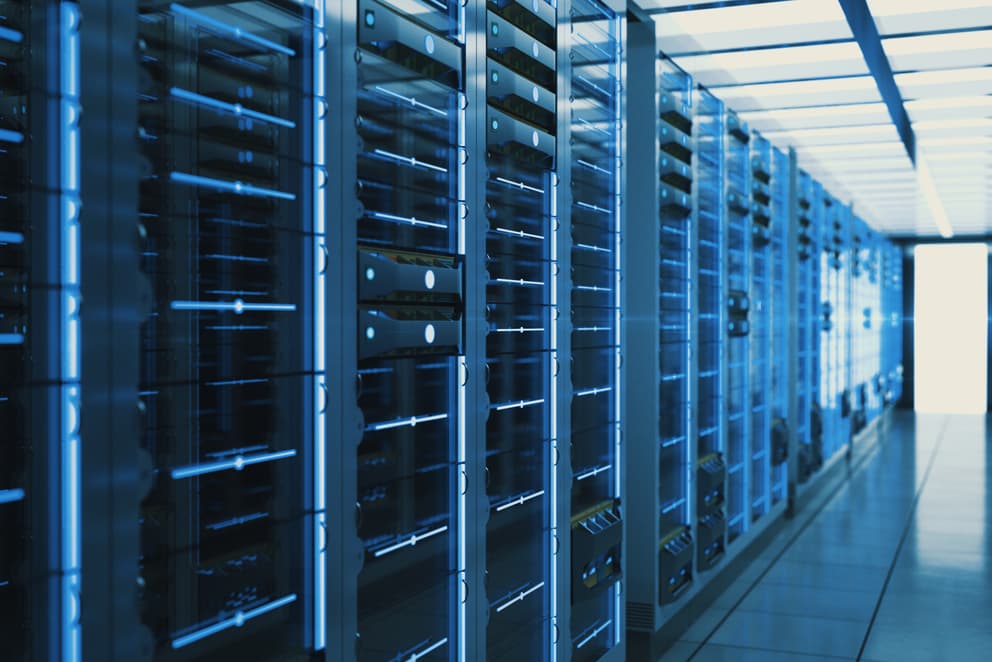-
Services
Services
Find out how we work with our clients and deliver value to construction projects from day one
-
Solutions
Solutions
Discover how all our solutions sync together to deliver construction's most powerful BIM platform to date
-
Built for
Built for
-
Industry
Industry
Understand how we support construction's biggest sectors, and hear from our clients who have experienced the power of XYZ
-
Resources
Resources
Get stuck into all our latest thought leadership, news, reports and industry leading content
-
Company
Company
Dive into what makes XYZ tick, unearth why construction is in our DNA and why we are world leaders in AR solutions

Insights
The rise of sustainable data centers

12 February 2024
As data usage explodes, fueled in part by artificial intelligence (AI) breakthroughs, the global expansion of data centers has become an integral part of our digital existence.
We increasingly rely on these centers for connectivity and storage; it's crucial for the companies behind these structures to integrate sustainable practices into their construction and operations.
Choosing sustainable building materials, adopting energy-efficient cooling systems and integrating renewable energy sources are all ways of ensuring that our growing dependence on data centers is balanced with a commitment to environmental responsibility.
Data centers are among the largest consumers of electricity worldwide, accounting for 1-1.5% of global electricity usage, a figure growing every day.
Let’s take a look at how industry giants Google Cloud, Amazon Web Services (AWS), Microsoft, Equinix, Schneider Electric and Compass Data Centers are working toward sustainable change.
Sustainability in data centers: industry leaders’ commitments
Google Cloud
Trillion-dollar tech giant Google has been heavily involved in hyper-scale data centre construction across Europe for many years, investing EUR 6.9 billion in related infrastructure between 2007 and 2018.
A trailblazer in sustainability, Google achieved carbon neutrality in 2007, marking a huge milestone as the first major company to do so. A decade later, it extended its environmental commitment by also becoming the first major company to meet its energy needs with 100% renewable sources.
Google CEO, Sundar Pichai, said: "At Google, we’ve been asking these questions for 25 years: Can a company at our scale operate on 24/7 carbon-free energy? We continue to make progress across all these areas."

AWS
A subsidiary of e-commerce and online streaming platform Amazon, Amazon Web Services (AMS) provides on-demand cloud computing platforms and APIs to individuals and companies. With over 200 fully featured services from data centers globally, AWS offers one of the world’s most comprehensive and broadly adopted cloud systems.
On track to power its operations with 100% renewable energy by 2025, AWS has also made substantial progress in terms of sustainability – operating five years ahead of its original 2030 commitment.
Adam Selipsky, CEO of AWS, said: "Amazon is helping fight climate change by moving quickly to power our businesses with renewable energy. With a total of 127 solar and wind projects, Amazon is now the biggest corporate buyer of renewable energy ever.”
Microsoft
The extensive network of multinational tech corporation Microsoft connects more than 60 data center regions, 200 data centers and over 175,000 miles of subsea fiber worldwide.
Globally renowned for prioritising climate action, the company set itself some ambitious targets in its 2022 Environmental Sustainability Report – namely aiming to become carbon negative, water positive and zero waste by 2030.
Yet Microsoft is already making strides; so far, it has managed to reduce its Scope 1 and Scope 2 emissions about 17% year over year through renewable energy purchasing.
It's also aiming to go a step further by 2025 by protecting more land than they use, the report states: "we’re taking accountability for our operational footprint and are committed to sharing learnings, accelerating markets, scaling solutions and being transparent about our progress.”
Equinix
Equinix is an American multinational company specialising in internet connection and data centers. As of 2020, its global data platform included more than 210 data centers across 55 cities - and was set for further expansion of an additional 13 sites.
A founding member of the EU Climate Neutral Data Centre Operator Pact, Equinix has extended its green mission by implementing a comprehensive Environmental, Social, and Governance (ESG) plan to enhance the sustainability of its activities.
The plan includes making energy efficiency savings wherever possible, investigating the replacement of diesel generators and spending $3.7 billion (to date) in green bonds for environmentally sustainable projects.
Commenting on their sustainability strategy, Equinix add: “As a leader in the industry, Equinix is committed to doing what is right to lead the way and maximising the benefits of technology for all people while minimising its impact on the planet.”
Schneider Electric
Schneider Electric is a French company that specialises in digital automation and energy management. Between them and supply chain partners Compass Data Centers, Schneider Electric has participated in the construction of around 150 modular data centers to date.
Recognised as the world’s most sustainable corporation in 2021, Schneider Electric not only adopts eco-friendly practices within the company itself but also assists its clients in achieving sustainability, too.
This is exemplified by one of Schneider Electric’s projects in Italy, which, using its advanced digital EcoStruxure Smart Grid system, successfully boosted renewable energy integration and usage in the area by 40%.
Schneider Electrics’ Chief Strategy & Sustainability Officer, Gwenaelle Avice-Huet, sees moving towards sustainability as an economic necessity: “companies that want to do well must also do good – and vice versa.”
Compass Data Centers
One of Inc. Magazine’s 5000 fastest growing companies, Compass Data Centres designs and constructs facilities for some of the world’s largest hyperscalers. Much like their partners at Schneider Electric, the company emphasise that preserving natural resources and minimising the impact of its work on surrounding communities is deeply integrated into its design processes.
By integrating water-free cooling, CarbonCure-manufactured concrete and reflective roofing materials – all of which contribute to reducing greenhouse gas emissions – Compass Data Centers are able to operate with minimal environmental impact.
The company is also moving towards using biofuel sources such as Hydrogenated vegetable oil (HVO) to fuel its generators.
Nancy Novak, Chief Innovation Officer at Compass Data Centers, agrees that greener choices are essential for growth: “The construction industry is responsible for close to 50% of greenhouse gas emissions, what an opportunity! Small changes in our industry mean big changes globally.”
Looking ahead: a more sustainable future for data centers
With industry leaders setting the standard for sustainability, the future of data center construction looks bright. The adoption of greener practices in data center construction is more than an environmental imperative - it's a business necessity.
By prioritizing sustainability, data centers can enhance their brand reputation and meet stakeholder expectations, as well as contributing towards a healthier planet.
To find out how you can drive sustainability goals in mission critical construction, explore my presentation at Digital Construction Week.







